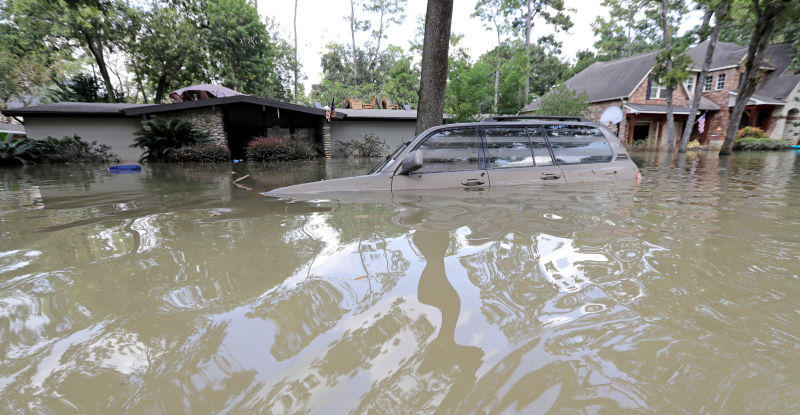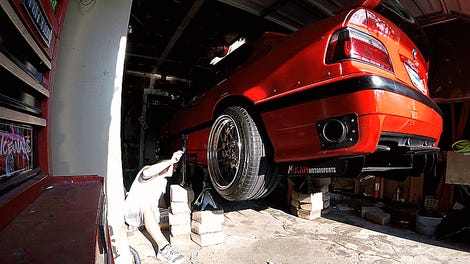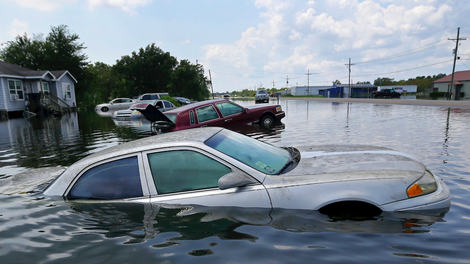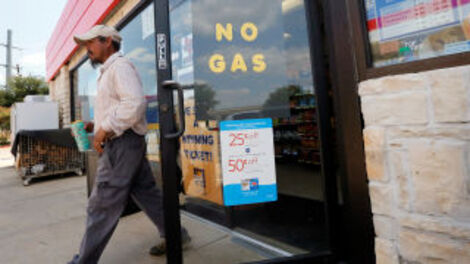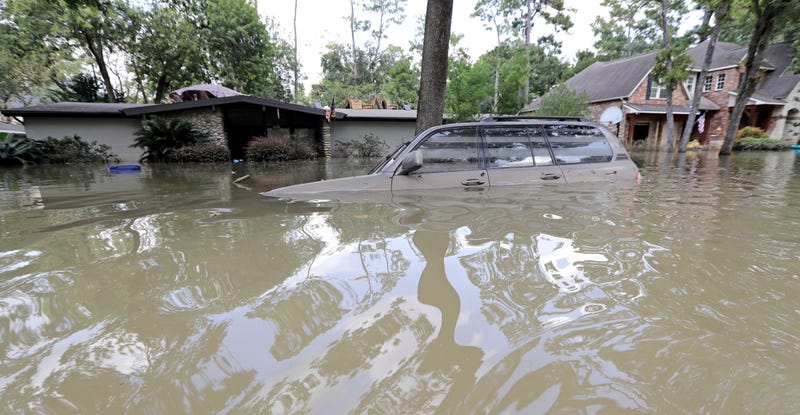
There are estimates that as many as half a million cars were damaged from the flooding caused by Hurricane Harvey along the Texas Gulf Coast, and many people are wondering what happens to those cars now. While some believe that they will be dragged off directly to junkyards or maybe even crushed, the process of recovering these vehicles is a lot more complex.
Cleanup efforts have already started and insurance adjusters, truck drivers, and auction representatives are already on the ground and working on processing these cars.
Advertisement
Let’s jump into the process and see how all of these cars will be moved from the street to their final destinations.
We’ll start off with cars that have comprehensive insurance coverage as most will follow a similar path. Once owners report that their cars have been flood damaged, the insurance companies will send adjusters out to inspect the cars on a first-come, first-serve basis.
Advertisement
The insurers have contingency plans for large disasters such as Hurricane Harvey and were able to put them into effect as soon as it started making landfall. Most insurers were assembling mobile teams of adjusters as early as the 27th and many will set up mobile claim centers as soon as areas are deemed safe.
Since there are so many affected vehicles the adjusters will be processing them in bulk and mostly verifying that it is the correct vehicle and noting the extent of the damage to see whether a vehicle can be repaired or if it will be declared a total loss. Once they’ve declared the vehicles a total loss, they will need to be transferred to a contracted auction facility.
The transport is usually handled by local tow truck companies that are contracted but due to the large amount of cars that need to be handled, tow truck drivers are coming from all over the country to assist in the removal efforts.
Once the vehicles are picked up they will go to a yard managed by one of the two major salvage auctions, either Copart or Insurance Auto Auctions.
Both of the auction houses have multiple yards around Houston, but they are filling up quickly due to the large amount of cars that need to be handled, so they are leasing space from local businesses in order to store the cars until they can be auctioned off. Copart has contracted with Royal Purple Raceway in Baytown, Texas in order to store cars and they have announced that the drag strip will be closed until the end of the year due to the quantity of cars that will need to be stored there. IAA has set up a similar offsite location at an industrial lot off Interstate 90 northeast of Houston.
Each of the companies have already collected more than 10,000 cars and space will be at a premium as the the days go on. The lot workers at each auction have already started taking pictures and cataloging the cars in order to prepare for auction dates which will start as soon as the claims are processed and the titles are received.
Once the paperwork is in order and auction dates are held, buyers will go onsite or bid virtually from all over the world. These vehicles will be bought up by local salvage yards, used car dealers, exporters, metal recyclers, and even individuals who pay a membership fee to bid or use a broker.
Advertisement
Once the sales are completed, some will be repaired by people who will try to flip them or by exporters who will send them to another country with less strict title laws while a majority will likely end up as parts at a junkyards.
None of these cars are likely to be crushed until all useful parts have been pulled out of them which could be months or years away. Luckily, since these cars will go through multiple reportable points, most of these events should show up on a vehicle history report.
The cars without comprehensive insurance will follow a variety of paths. Since the owners have no recourse, many will try to dry them out and repair them without ever reporting that they were flooded. These are usually going to be older, paid-off cars since most banks require a comprehensive policy when writing a loan.
Advertisement
The cars that end up repaired are the ones to watch out for in the future. Inspect used car purchases closely because there will be no record that they were flooded since the insurance companies and auction houses will never see them.
Uninsured and under insured cars that are not repairable will likely be sold for around scrap value to tow companies that will be on the hunt for vehicles that have not been picked up and will meet their insured counterparts at junk yards where they will be picked apart for anything useful before they are crushed.
The recovery operation for these cars is a complex but well-oiled machine that has already processed tens of thousands of cars and is likely to process hundreds of thousands by the end of the month. The adjusters, truck drivers, and auction lot workers will be working long days and nights in the coming weeks in order to clean up the streets of Houston and help people to move on into new transportation but the unscrupulous flippers are just getting started, so keep your eyes out for flood-repaired vehicles that will be showing up on the market shortly.
Advertisement
Bozi was born in the land of the Yugo but grew up flipping Chevys in the Southeast US. His automotive background ranges from running a used car sales and service facility to building junkyard LS engines and fixing endurance cars. You can find him on Twitter and YouTube.

